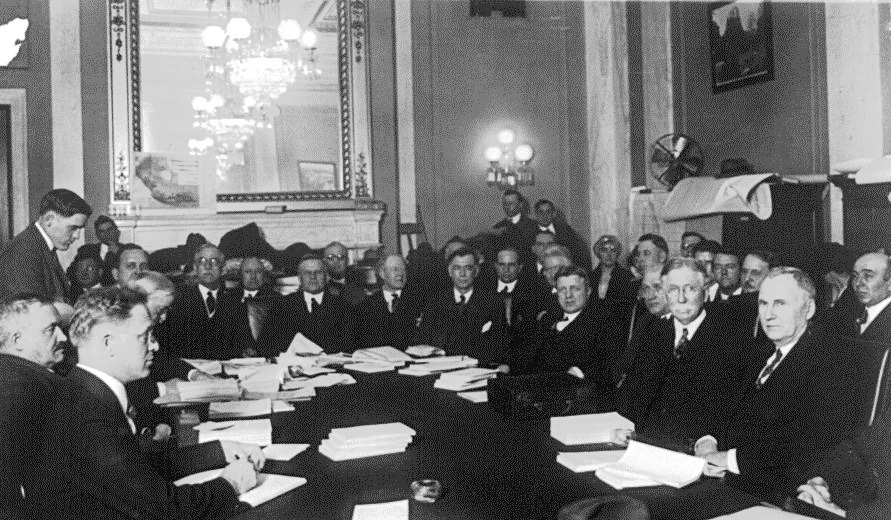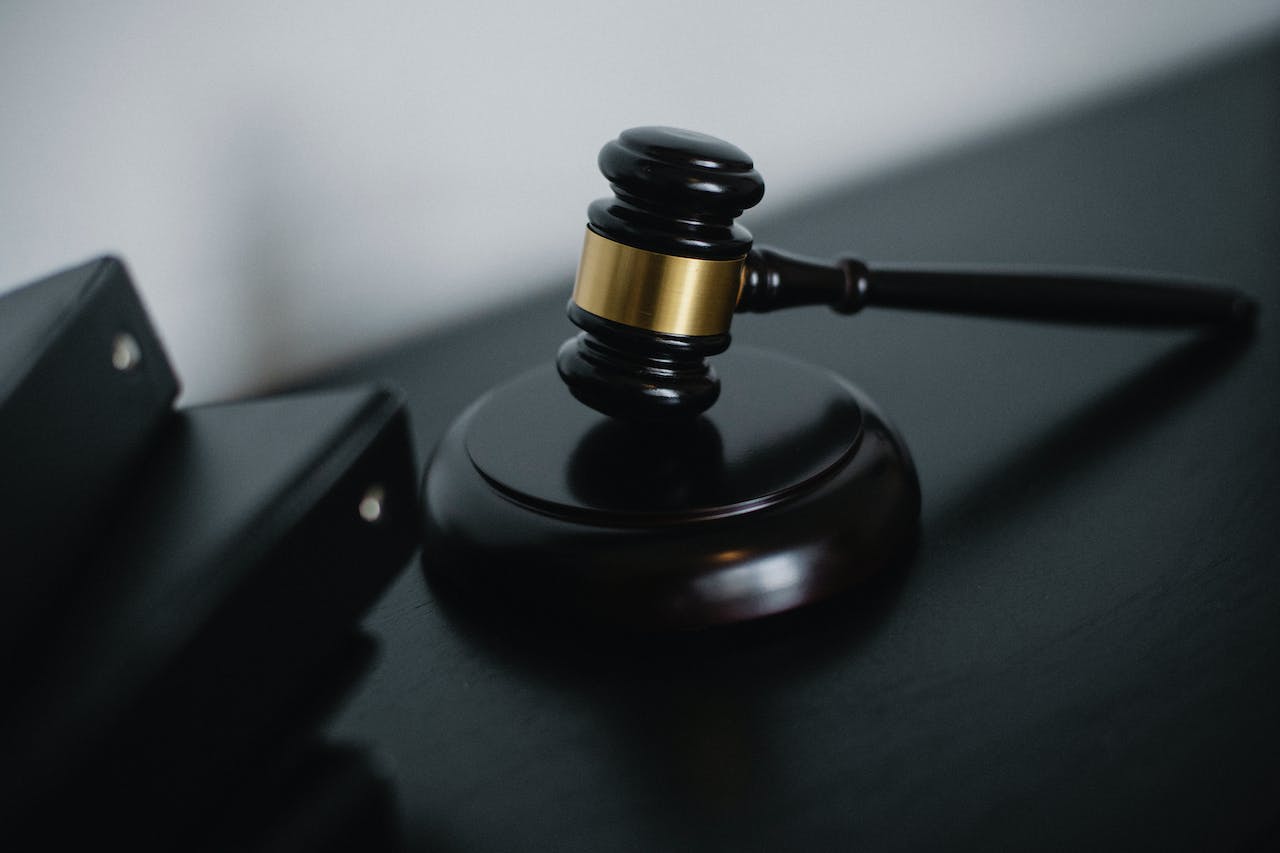The Teapot Dome Scandal, emerging in the early 1920s, stands as a significant chapter in American political history, often overshadowed by the more flamboyant scandals of later years. This episode, centered around the illicit leasing of federal oil reserves, unfolded under President Warren G. Harding’s administration. It carved a deep mark on the public’s perception of governmental integrity and corporate influence in politics.
At its core, the scandal involved key political figures and oil magnates, weaving a tale of corruption, bribery, and betrayal. It highlighted the fragility of trust between the American public and its elected officials. The narrative of the Teapot Dome Scandal is not just about the illegal transactions that took place. It is a reflection of the era’s political climate, the roaring 1920s, a period marked by economic prosperity and political corruption. This blog aims to unravel the layers of this historical event, exploring the intricate details and lesser-known facets of a scandal that changed the American political landscape.
The Origins of the Scandal
The roots of the Teapot Dome Scandal trace back to post-World War I America, a time characterized by rapid industrial growth and political upheaval. Central to this narrative were key figures like Albert B. Fall, the Secretary of the Interior under President Harding, and influential oil tycoons who played pivotal roles in the unfolding events.
Albert B. Fall, a former U.S. Senator from New Mexico, was a man of significant political clout. His appointment as Secretary of the Interior placed him in a powerful position, overseeing the nation’s natural resources, including the oil-rich Teapot Dome in Wyoming and Elk Hills in California. These reserves, originally designated for use by the U.S. Navy in times of crisis, soon became the epicenter of a clandestine plot.
The scandal’s inception was marked by the covert leasing of these oil fields to private companies without competitive bidding. This act, though seemingly mundane in administrative procedures, was fraught with corruption and backdoor deals. Fall’s relationships with prominent businessmen like Edward L. Doheny and Harry F. Sinclair were instrumental in these transactions. They exchanged substantial loans and gifts for exclusive rights to tap into these lucrative oil reserves, setting the stage for one of the most infamous scandals in American history.
This period, therefore, was not just about the allocation of natural resources; it was a reflection of the growing influence of corporate power in government and the fragile nature of ethical governance in the roaring twenties. The stage was set for a scandal that would expose the deep-rooted corruption in the heart of American politics.
The Secret Leasing and Its Discovery
The clandestine leasing of the Teapot Dome and Elk Hills oil reserves marked a turning point in the scandal. This secretive arrangement, orchestrated by Albert B. Fall, bypassed the standard competitive bidding process, raising immediate suspicions among those closely monitoring government activities. The deals were shrouded in mystery, with no public knowledge or congressional approval, a clear deviation from standard government protocols.
The pivotal moment in unveiling these covert operations came from an unlikely source. The press, along with vigilant whistleblowers, played an instrumental role in bringing the scandal to light. Investigative journalists delved into the murky depths of these transactions, unearthing evidence of corruption and kickbacks. Their relentless pursuit of the truth, often at great personal risk, began to unravel the threads of the conspiracy.
Initial Public Reaction
Public reaction to the scandal was immediate and intense. The revelation of such blatant corruption at the highest levels of government sent shockwaves through American society. It was a stark reminder of the potential for abuse of power and the importance of transparency in government dealings. The public outcry led to a series of investigations, spearheading a nationwide demand for accountability and reform.
The exposure of the secret leasing not only marked a significant moment in the Teapot Dome Scandal but also underscored the critical role of a free press and vigilant citizens in safeguarding democratic values. This chapter in American history served as a catalyst for change, prompting a reevaluation of how government business is conducted and the importance of ethical governance.
The Legal Battles and Political Fallout
State Investigations
The revelation of the Teapot Dome Scandal triggered a series of legal battles and a significant political fallout that reverberated through the Harding administration. The Senate, responding to the public’s demand for accountability, initiated comprehensive investigations to uncover the full extent of the corruption. These hearings, marked by intense scrutiny and widespread media coverage, peeled back the layers of deceit and bribery that had tainted the government’s integrity.
Albert B. Fall’s Trial
Central to the legal confrontations was the trial of Albert B. Fall. His prosecution became a landmark case in the annals of American justice, symbolizing the fight against political corruption. Fall, once a respected politician, found himself embroiled in legal proceedings that scrutinized his every action and association. The trials revealed a web of illicit transactions and unethical conduct, painting a picture of a government official who had grossly abused his power for personal gain.
Impact on the Administration
The impact of the scandal on President Harding’s administration was profound. Harding himself, although not directly implicated in the scandal, faced a tarnished reputation due to his association with the implicated parties and his administration’s perceived leniency towards corporate interests. The scandal highlighted the vulnerabilities in the Harding administration and raised questions about his judgment in appointing officials to key government positions.
The Teapot Dome Scandal, through its legal battles and political repercussions, became a watershed moment in U.S. history. It led to significant reforms in government policies and procedures, especially concerning the management of national resources. Moreover, it served as a stark reminder of the need for vigilance against corruption in public office, shaping the future course of American politics and governance.
The Untold Stories
Beneath the surface of the well-documented events of the Teapot Dome Scandal lie stories that have remained largely untold. Among these are the roles of various peripheral figures who played crucial, albeit less conspicuous, parts in the unfolding events. These individuals, ranging from lower-level government employees to local businessmen, contributed in their own ways to either the perpetration or the uncovering of the scandal, offering a more nuanced view of the events.
The Untold Impact on the Land and Local Communities
The impact of the scandal on local communities, particularly those near the Teapot Dome and Elk Hills reserves, is an often-overlooked narrative. The exploitation of these oil reserves had significant environmental and economic implications for the surrounding areas. Moreover, the involvement of Native American lands in the scandal highlights another dimension of exploitation and oversight, drawing attention to the broader consequences of governmental corruption.
Corporate Lobbying
The role of corporate lobbying in the Teapot Dome Scandal is another critical yet understated element. The scandal laid bare the extent to which private interests could influence public policy and decision-making. It showcased the early stages of corporate lobbying efforts in American politics, a practice that has since become more sophisticated and pervasive.
These untold stories contribute to a more comprehensive understanding of the Teapot Dome Scandal. They provide insight into the multifaceted nature of political corruption, the far-reaching impact of government decisions, and the various forces at play in shaping public policy. These narratives remind us that history is often more complex than the dominant stories suggest, offering valuable lessons for contemporary society.
Legacy in American Politics and Policy
The Teapot Dome Scandal’s legacy in American politics and policy is both profound and enduring. In the wake of the scandal, significant changes were implemented in federal oil and land management policies. These reforms were aimed at preventing a recurrence of such corruption by increasing transparency and strengthening oversight in the leasing and management of government resources. The scandal underscored the necessity of rigorous regulatory frameworks to safeguard national assets from exploitation and misuse.
Impact on Public Trust
Beyond policy reforms, the scandal had a lasting impact on public trust in government. It served as a jarring reminder of the potential for corruption in high offices, shaking the American public’s confidence in their elected representatives. This breach of trust prompted a more skeptical and questioning attitude towards government, fostering a culture of accountability and vigilance that continues to influence political discourse.
Historically, the Teapot Dome Scandal represents a pivotal moment in the evolution of American political consciousness. It marked a transition from a naive trust in government officials to a more cynical and watchful stance. The scandal also holds a mirror to the perennial challenges of balancing public service with private interests, a theme that remains relevant in contemporary politics.
The legacy of the Teapot Dome Scandal thus extends far beyond its immediate aftermath. It serves as a historical benchmark for evaluating political corruption and a cautionary tale about the importance of ethical governance. The lessons learned from this scandal continue to resonate, shaping the contours of American political and policy-making processes to this day.
Relevance in the Modern Times
The Teapot Dome Scandal, though a historical event, holds significant relevance in modern times, offering enduring lessons for contemporary politics and governance. Its parallels with recent political scandals are striking, underscoring the timeless nature of certain ethical challenges in governance. Modern scandals, while differing in context and scale, often echo similar themes of power misuse, corruption, and the intricate interplay between private interests and public office.
In essence, the Teapot Dome Scandal is not just a chapter in history books but a living lesson that resonates through the corridors of modern politics. It stands as a testament to the fact that the challenges of governance, particularly those concerning integrity and public trust, are as pertinent today as they were a century ago. This scandal continues to inform and shape the principles and practices of political conduct in the contemporary world.
Conclusion
The Teapot Dome scandal was not merely an isolated instance of political corruption; rather, it was a pivotal event that reshaped public perception of governmental integrity and influenced policy and governance for generations to come. The intricate web of secrecy, power, and corruption revealed through this scandal has left an indelible mark on the American political landscape.
As we reflect on this chapter of American history, the lessons of the Teapot Dome Scandal remain as relevant as ever. They continue to guide and inform the principles of transparency, accountability, and ethical leadership that are essential for the health and sustainability of any democratic society. The Teapot Dome Scandal, thus, is not just a relic of the past but a living legacy that continues to influence the present and shape the future of political conduct and public trust.



